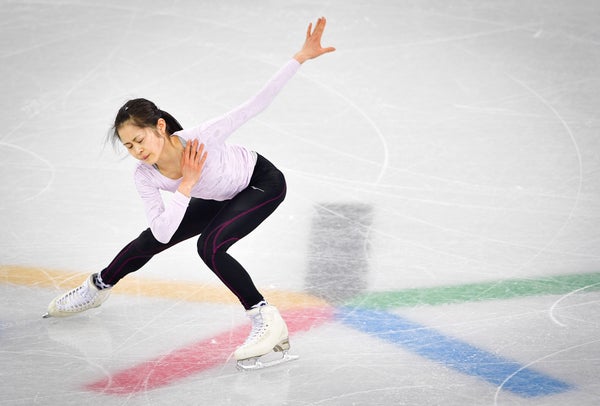Editor’s Note (02/08/18): Scientific American is re-posting the following article, originally published August 5, 2016, in light of the 2018 Winter Games which begin on February 9 in PyeongChang, South Korea.
Is it safe to assume that a gold medalist at the Olympics practiced more than a silver medalist—and that a silver medalist practiced more than a bronze winner? Definitely not, according to a new analysis, which looked at nearly 3,000 athletes. The study found that although becoming world class takes an enormous amount of practice, the success of elite athletes cannot be predicted based on the number of hours they spend in careful training.
In 1993 Swedish psychologist K. Anders Ericsson published a highly influential paper that suggested performance differences between mediocre musicians and their superior counterparts—as determined by the evaluations of their professors—were largely determined by the number of hours they spent practicing. He would later publish work extending his theory to other pursuits, including sports, chess and medicine. Ericsson emphasized that there was no upper bound to the effect that deliberate practice had on success in these areas—the world’s best athletes, musicians and doctors were simply the ones who practiced the most. His work would eventually be popularized by journalist Malcolm Gladwell and others as the “10,000-hour rule,” which suggests that top performance in virtually any field is simply a matter of putting in 10,000 hours of work.
On supporting science journalism
If you're enjoying this article, consider supporting our award-winning journalism by subscribing. By purchasing a subscription you are helping to ensure the future of impactful stories about the discoveries and ideas shaping our world today.
But a new study published in Perspectives on Psychological Science shows—as others have—that deliberate practice is just one factor that makes world sports champions. “More or less across the board, practice will improve one’s performance,” says Brooke Macnamara, a psychologist at Case Western University and lead author of the study. At a certain level of success, however, other factors determine who is the absolute best, she says.
Macnamara and her colleagues analyzed 34studies that—put together—had tracked the number of hours 2,765 athletes had practiced. Those studies also recorded the athletes’ achievements, as determined by either objective measure such as a race time, expert rating of performance or membership in elite groups. For sports at all levels, including athletes performing at a state level or in clubs, deliberate practice could explain 18 percent of the differences in achievement between athletes. But when the researchers looked only at the very best competitors—those who had competed in the Olympics or other world competitions—differences in the number of hours they had practiced explained just 1 percent of the difference in their performance at sporting events. “This suggests that practice is important to a point, but it stops differentiating who’s good and who’s great,” Macnamara says. At the national and global level, a poorly understood mixture of genetics, psychological traits and other factors influence performance.
Ericsson, who is now a professor at The Florida State University, thought that the criteria used in the meta-analysis to define deliberate practice was not strict enough because it grouped self-directed activities and other kinds of practice into the category of deliberate practice, instead of exclusively looking at teacher-directed assignments with immediate feedback. “They have a very different idea of what we’re talking about with deliberate practice,” he says. Ericsson does acknowledge, however, that the kind of practice he has in mind—in which athletes are closely monitored by coaches at all times—is uncommon in sports. Indeed, applying his new, stricter definition would even exclude some of his own studies on the effect of deliberate practice.
Many in the field see the question of “10,000 hours” as academic rather than practical. “The majority of the scientists in the field would acknowledge that practice is important in the development of expertise, but at the same time I guess that we accept that other factors would contribute,” says Mark Williams, a sport, health and exercise scientist at Brunel University London who was not involved in the research. “[The new study] is an interesting paper, but I don’t think it’s going to necessarily change what people are currently doing,” he says.
Jeffery Fairbrother, a motor behavior scientist at the University of Tennessee who was also not part of the study, agrees that the new research probably will not change how athletes practice: “If we’re trying to translate this into usable information for a coach or for an athlete, I don’t know how interested they are in us picking each other apart like we do when we’re trying to disprove things from a theoretical perspective,” he says. “We know that performance can be profoundly influenced by the right training experiences. Shouldn’t we focus on providing those experiences to as many people as possible so that they can reach their potential?”
Macnamara says the meta-study opens the way for a more nuanced understanding of the way multiple factors combine and contribute to performance. “I don’t know if we’ll ever be able to 100 percent explain [what makes an elite athlete], but I think we can do better than what we’re doing now.”
